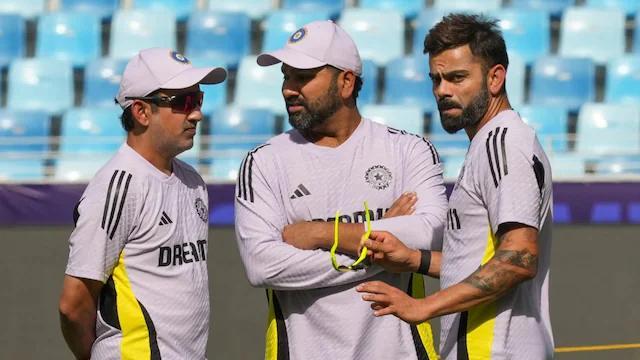
No one has the right to tell someone when to retire: Gautam Gambhir
The sudden retirement of two of India’s most prominent cricketers, Rohit Sharma and Virat Kohli, from the longest format of the game, Tests, has sent shockwaves across the cricketing world. While many have been left stunned by their decision, India head coach Gautam Gambhir has weighed in on the matter, offering a unique perspective on the topic. In an exclusive interview, Gambhir emphasized that no one has the right to dictate when a cricketer should retire.
“Be it coach, selector, be it anyone in this country…No one has the right to tell someone when to retire and when not to retire…So it comes from within,” Gambhir said, his words echoing a sense of empathy and understanding for the cricketers who have made the difficult decision to hang up their boots.
Gambhir’s statement comes days after Sharma and Kohli announced their retirement from Tests, leaving fans and fellow cricketers alike to ponder the reasons behind their decisions. While some have speculated about the pressure to perform and the physical toll of playing the longest format, Gambhir’s perspective suggests that the decision to retire should ultimately be left to the individuals themselves.
In an era where social media platforms and 24/7 news cycles can amplify criticism and scrutiny, it’s refreshing to hear a coach’s voice advocating for cricketers to make their own choices. Gambhir’s words are a reminder that, at the end of the day, it’s the players who know their own bodies and minds best, and that no one else has the right to dictate when they should call it a day.
Of course, Gambhir’s statement is not without context. As a former cricketer himself, he likely understands the emotional and psychological challenges that come with hanging up one’s boots. His words may be seen as a nod to the importance of respecting a player’s autonomy, even if that decision is met with disappointment or surprise from fans, teammates, and coaches.
The debate around retirement is a complex one, with valid points on both sides. On one hand, players who continue to play for their country, often at great personal cost, deserve the right to make their own decisions about when to retire. On the other hand, the sudden loss of experienced players can have a significant impact on a team’s performance and morale.
As Gambhir himself acknowledged, the decision to retire is a personal one, and one that requires careful consideration. For Sharma and Kohli, who have given so much to Indian cricket, their decision to retire from Tests is likely a culmination of years of hard work, dedication, and sacrifice. It’s understandable that they would want to prioritize their well-being and focus on other aspects of their lives.
Gambhir’s statement also speaks to the often-overlooked reality of player burnout. In an era where the game is faster-paced and more demanding than ever before, cricketers are expected to perform at an elite level for extended periods, often without adequate rest or respite. It’s no wonder that players are seeking to prioritize their mental and physical health, even if that means stepping away from the game at a relatively young age.
In conclusion, Gautam Gambhir’s words offer a valuable reminder that, in the world of cricket, no one has the right to dictate when a player should retire. As the debate around Sharma and Kohli’s retirement continues to rage, Gambhir’s statement serves as a poignant reminder of the importance of respecting a player’s autonomy and allowing them to make their own decisions about their future.






